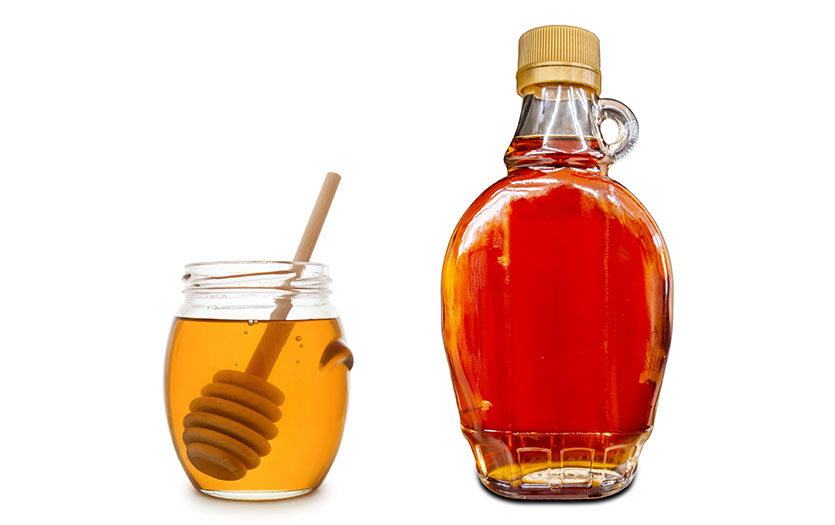
This post was written based on a presentation given by Lydia Conner, RDN, LD, community outreach dietician, Parkview Center for Healthy Living.
Nearly half of adults in the United States have high blood pressure, or hypertension. According to the Centers for Disease Control and Prevention (CDC), only around 1 in 4 people with hypertension have their blood pressure under control. High blood pressure puts you at risk for heart disease and stroke. Changing your daily diet can have a positive effect on your heart health, including reducing blood pressure. Let’s take a look at the way adding more potassium to your diet can help regulate your blood pressure.
What is hypertension?
Hypertension is the medical term for blood pressure that is consistently higher than normal. Your blood pressure is a measurement of the amount of pressure your blood is putting on the walls of your arteries. When your blood pressure is high (a reading of 130/80 mmHg or higher) it increases the workload of the heart, kidneys and other organs. Left untreated, high blood pressure can lead to complications like heart attack, stroke, aneurysm or heart failure.
Hypertension and our diet
The typical American diet is high in sodium and low in potassium. Foods high in sodium lead to fluid retention and an increase in blood volume and pressure.
Potassium is a mineral that helps to lower blood pressure by relaxing the walls of the blood vessels and reducing the effects of sodium. It also plays a role in our muscle function, nerve conduction and heart rhythm. Eating foods rich in potassium like fruits, vegetables, beans and nuts can help manage high blood pressure and lower the risk of heart disease and stroke.
Foods high in potassium
A food is considered high in potassium if it contains at least 200 mg per serving. However, eating larger portions of lower-potassium foods can also be a great way to increase your potassium intake.
High potassium vegetables
-
Artichokes
-
Avocado
-
Bamboo shoots (raw)
-
Beets (canned or fresh)
-
Brussels sprouts
-
Chard (cooked)
-
Chinese cabbage
-
Corn
-
Kohlrabi
-
Potatoes
-
Parsnips
-
Pumpkin
-
Rutabaga
-
Spinach (cooked, canned or frozen)
-
Squash (winter, acorn, butternut)
-
Tomatoes (raw, boiled, canned, purees, sauces)
High potassium fruits
-
Bananas
-
Dried fruit (apricots, dates, figs, prunes, raisins, currants)
-
Kiwi
-
Melon (cantaloupe, honeydew)
-
Nectarine
-
Orange
-
Papaya
-
Peach
-
Plantain
-
Pomegranate
High potassium grains
-
Bran cereals
-
Granola
High potassium proteins
-
Legumes/pulses (beans, black-eyed peas, split peas, lentils, chickpeas)
-
Beef, fish and poultry
-
Nuts
-
Soy (soy nuts, tofu)
High potassium dairy and dairy alternatives
-
Milk
-
Yogurt
-
Soy milk
-
Cottage cheese
-
Coconut milk
High potassium beverages
-
Vegetable or tomato juice
-
Fruit juices (pomegranate, prune, orange, carrot)
-
Coconut water
-
Low-sodium broths
-
Bottled or instant tea
Should I take potassium supplements?
Our daily estimated potassium needs are around 2,600 mg/day for women and 3,400 mg/day for men. Most of us fall short on these potassium goals. To ensure you are meeting the recommended potassium goals, opt for food first. Reflect on your eating habits and look for opportunities to add more high-potassium foods, especially fruits and veggies.
Beyond your diet, a multivitamin can help fill in the gaps on many nutrients. Some multivitamins have higher levels of potassium than others, so be sure to check the label and estimate your potassium intake from food to ensure you’re not getting too much.
Can I have too much potassium?
While your body needs potassium, having too much in your blood can be harmful. Too much potassium is called hyperkalemia and can lead to serious heart problems. Some individuals are at a higher risk of eating too much potassium.
Conditions that require watching or limiting your potassium intake include:
-
Late-stage chronic kidney disease (CKD)
-
Advanced age (reduction in kidney function)
-
Taking certain medications that prevent kidneys from losing adequate potassium
-
Taking extra potassium, such as from supplements
-
Addison’s Disease
-
Poorly controlled diabetes
-
Experienced a serious injury or severe burn
Find information about how to be referred to the Hypertension Clinic and what to expect as a new patient by visiting us here.



